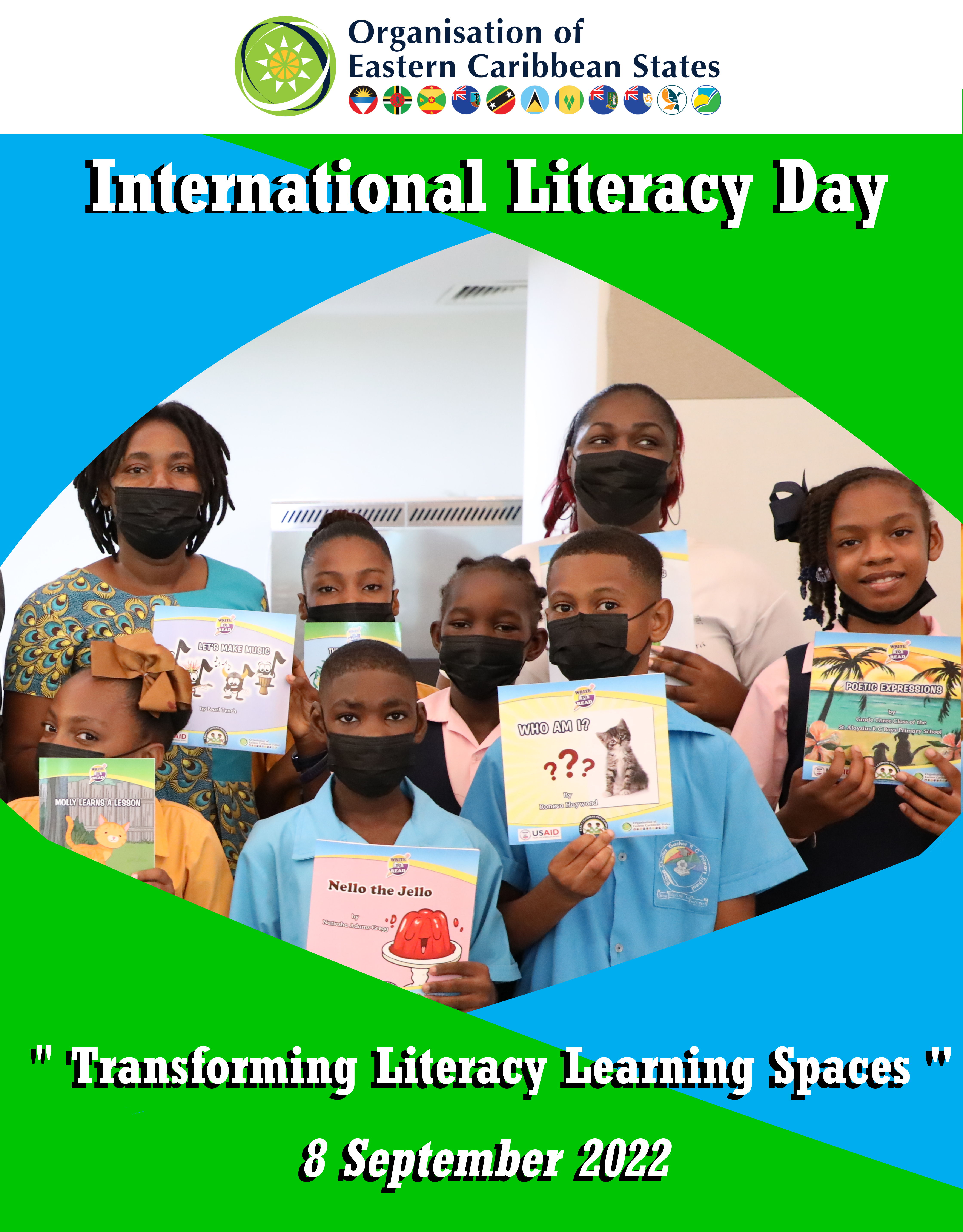The OECS Celebrates International Literacy Day 2022
OECS Media Release
Literacy is a practical tool of empowerment and is imperative in achieving all three pillars of sustainable development: economic development, social development, and environmental development. Today, as the world commemorates International Literacy Day under the theme: “Transforming Literacy Learning Spaces”, the OECS Commission acknowledges that equitable access to literacy can transform learning for every child and reaffirms its commitment to the transformation of literacy learning spaces in the region to ensure that "Every Learner Succeeds".
In June 2022, the Program for Educational Advancement and Relevant Learning or OECS PEARL brought together Early Childhood Education (ECE) Leaders for an ECE Leaders Forum entitled: "Reflect, Refocus and Renew". The forum provided ECE leaders with the opportunity to reflect on the disruption in learning caused by the COVID-19 pandemic and explore how the OECS PEARL can work with educators to serve the literacy and education needs of young learners.
The Commission recognizes that there is a need to encourage literacy development and provide greater access to both traditional and digital literacy resources in the region. In September 2021 the OECS’ Education Development Management Unit launched the Global Digital Library. The Global Digital Library (GDL) is an Open Education repository targeting early learners and contains over 6000 books in 83 languages. The Commission also launched the Digital Education Capacity-Strengthening Initiative (DECI) in June 2022, under the theme ‘Developing Digital Content to Create Immersive Learning Experiences”. DECI is a digital education program designed for the Early Grade Education Sector in the OECS. It will build the capacity of 600 principals and teachers in content development and produce 1500 culturally relevant resources that can be freely accessed by teachers, students and parents through an OECS platform. A wide range of books and educational content has been curated and shared by the OECS Commission and can be accessed by visiting the OECS Kolibri platform and the OECS version of the Global Digital Library (GDL).
As the region continues to strengthen education and transform literacy learning spaces to build a more sustainable future, the OECS Commission encourages all supporters of literacy and education to join us by sharing how reading inspires you. Use the hashtag #OECSReads to post stories, photos of favourite books, or a video of you reading a children’s book from the Global Digital Library.
Malika Thompson-Cenac
Lisa Sargusingh-Terrance
